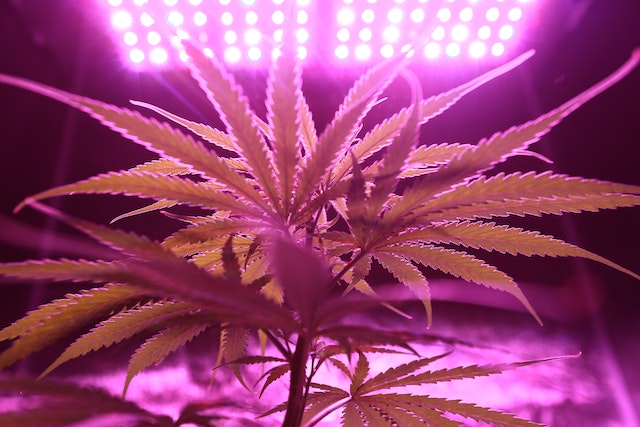Image from: https://www.pexels.com/photo/close-up-photo-of-green-leafed-plant-2731667/
Delta 8, a lesser-known cannabinoid, has recently gained significant attention in the cannabis world. While it originates from the same plant as its well-known counterpart, Delta 9 THC, Delta 8 exhibits some distinct characteristics that set it apart. Unlike Delta 9 THC, Delta 8 is only present in trace amounts in the cannabis plant and is typically derived from hemp through specialized extraction methods. Its psychoactive effects are milder, providing users with a more subtle and controlled experience. As interest in alternative cannabis products grows, understanding the unique qualities of Delta 8 becomes essential for informed consumption choices.
Delta 8: What Is It? What Makes It Unique Compared to Other Cannabis?
The Molecular Structure and Origins of Delta-8
The chemical structure of Delta-8 is very similar to that of Delta-9 THC, with the exception of the location of a double bond. Despite its relatively little chemical difference, it has diverse impacts on the endocannabinoid system in the body. Since delta-8 is derived from the hemp plant, it is federally allowed under certain conditions, particularly when derived from hemp having less than 0.3% Delta-9 THC. Delta-8 products, like edibles and vape cartridges, are becoming more popular among users looking for nontraditional cannabis experiences as a result of this legal difference. Delta-8 tetrahydrocannabinol is less strong than Delta-9 THC, but it still has the potential to cause psychoactive effects, so it’s important to use it responsibly and have regulatory monitoring in how it’s sold and distributed.
The Psychoactive Effects of Delta-8:
The psychoactive effects of Delta-8 are intriguing and distinctive compared to other cannabis compounds. While it shares a similar chemical structure with Delta-9 THC, its psychoactive impact is notably milder and more subdued. Users often report experiencing a gentle, uplifting high that induces relaxation and euphoria. This subtler effect appeals to those seeking a more balanced and controlled experience. Delta-8 tetrahydrocannabinol can have different effects on different people; thus, it’s important to stress that everyone’s experience with it will be unique.
Legal Status and Regulations Surrounding Delta-8:
Delta-8 tetrahydrocannabinol’s legal status is complex and dynamic, especially in the United States, subject to varying local regulations. Its legality depends on variables like where it was produced and whether or not it contains Delta-9 THC. Delta-8 tetrahydrocannabinol is sold and used legally in places where it is expressly legalized and controlled. On the other hand, several jurisdictions have restricted or outright banned its usage owing to safety and health concerns. Consumers and vendors alike must master this tangled legal environment or risk facing serious ramifications. Knowing the local laws regarding the purchase, possession, and use of Delta-8 tetrahydrocannabinol products can help consumers make educated judgments. To remain in compliance with the ever-changing legal environment around Delta-8 tetrahydrocannabinol, it is essential to keep up with the latest local and federal legislation as it develops.
Comparing Delta-8 THC with Other Cannabis Products:
Delta-8 vs. Delta-9 THC:
Delta-8 and Delta-9 THC are two cannabinoids found in the cannabis plant, each with distinct properties and effects. Delta-9 THC is the most well-known psychoactive compound in cannabis and is responsible for the traditional “high” associated with marijuana use. On the other hand, Delta-8 shares a similar chemical structure but induces milder psychoactive effects, leading to a more subtle and controlled experience. Users often report reduced anxiety and paranoia with Delta-8 compared to Delta-9 THC. Additionally, Delta-8 is typically present in lower concentrations in the plant, but it can be derived from hemp through specialized extraction methods.
Delta-8 vs. CBD:
Although both delta-8 and cannabidiol (CBD) are cannabinoids, they have quite different physiological and psychological effects. CBD is non-psychoactive, meaning it does not produce a “high” sensation. Instead, it is known for its potential therapeutic benefits, such as reducing anxiety, alleviating pain, and aiding in relaxation. Many people use CBD products for its potential medical and wellness applications. However, Delta-8 tetrahydrocannabinol does have some psychoactive effects, including moderate pleasure and relaxation. CBD is an appealing option for individuals looking to unwind and feel better without experiencing any cognitive impairment. Among its many health benefits is its ability to alleviate anxiety and improve sleep quality. Delta-8 tetrahydrocannabinol, on the other hand, gives a mild psychoactive effect and can be preferable for certain users.
Delta-8 vs. THC-O Acetate:
THC-O Acetate, a recently popular synthetic cannabinoid, possesses unique effects comparable to Delta-8 tetrahydrocannabinol. However, concerns have arisen due to its reported increased potency and prolonged duration of action. Users of goods containing THC-O Acetate should proceed with care due to the compound’s increased potency, as it can lead to more intense euphoric effects and a longer duration of action. Research and regulatory control are necessary for the safe and responsible use of any innovative chemical.
Conclusion
Delta-8 tetrahydrocannabinol provides a novel and potentially therapeutic cannabis experience with fewer and milder psychoactive effects. It differs from other cannabis products like Delta-9 THC and CBD in molecular structure, origin, and effects. It is crucial for consumers and industry stakeholders to keep up with the changing legal status and potential benefits and risks associated with Delta-8 tetrahydrocannabinol as regulations and scientific understanding continue to evolve. Delta-8 tetrahydrocannabinol is an intriguing option for those interested in trying something different from standard cannabis products, but only if used with caution and understanding.


